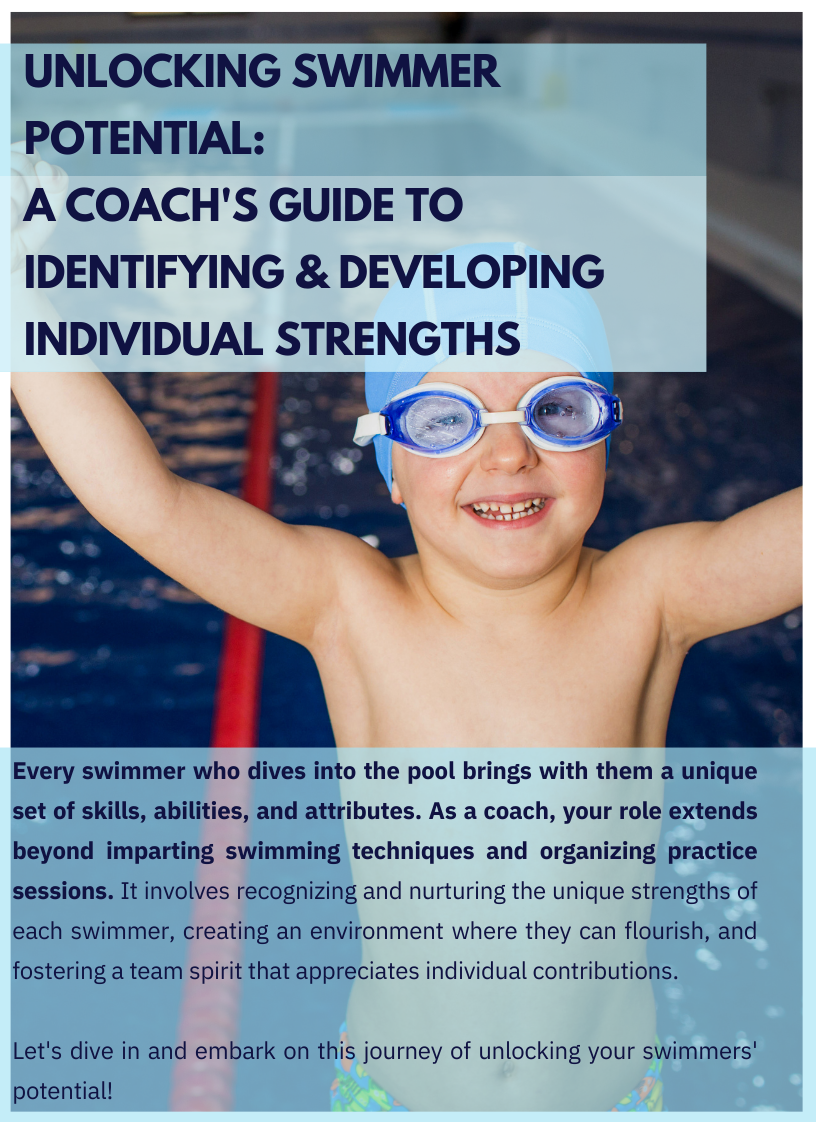Click the image to download a PDF of this blog post!
Every swimmer who dives into the pool brings with them a unique set of skills, abilities, and attributes. As a coach, your role extends beyond imparting swimming techniques and organizing practice sessions. It involves recognizing and nurturing the unique strengths of each swimmer, creating an environment where they can flourish, and fostering a team spirit that appreciates individual contributions.
Let's dive in and embark on this journey of unlocking your swimmers' potential!
The Power of Individual Strengths:
Understanding the unique capabilities of each swimmer can significantly impact their self-esteem and performance. By acknowledging these strengths, you validate their skills, boosting their confidence and encouraging them to push their boundaries.
Techniques for Identifying Strengths:
Recognizing a swimmer's strengths requires careful observation and understanding. Look beyond the physical abilities—consider their mental resilience, their dedication, their attitude toward competition. Individual meetings, regular feedback, and monitoring progress over time are key to identifying these strengths.
Enhancing Swimmer Strengths:
Once you've identified a swimmer's strengths, it's time to nurture them. Tailor their training to further develop these skills, be it speed, endurance, technique, or mental toughness. Provide personalized drills, give constructive feedback, and use motivational techniques to encourage growth.
Fostering Individual Attention in a Team Environment:
Balancing individual attention with team cohesion can be challenging but is crucial for a team's success. Incorporate individual development within group practice sessions, assign roles based on individual strengths during relays, and promote a supportive environment where each swimmer's contribution is acknowledged and appreciated.
Case Studies:
Consider the story of a swimmer who was always the last in races, but they had a positive attitude and tireless dedication. By focusing on these mental strengths, their coach helped them improve their technique and speed over time, transforming them into a top competitor. This is just one example of how identifying and developing individual strengths can lead to remarkable improvement.
Dealing with Diverse Abilities:
Managing a team with varying skill levels can be challenging. It's important to ensure each swimmer, regardless of their current skill level, feels valued and included. Tailor your coaching to each swimmer's needs, and create an environment where everyone can learn from each other's strengths.
Using Swimmingly to Track Progress:
Technological tools like Swimmingly can greatly aid in tracking swimmers' progress, organizing team information, and freeing up more time for coaches to focus on individual training. Embrace these digital tools to augment your coaching and give each swimmer the attention they deserve.
As a coach, you play a vital role in developing your swimmers' strengths, shaping them into not just better athletes, but also more confident and resilient individuals. Embrace this opportunity to make a lasting impact on their lives.


